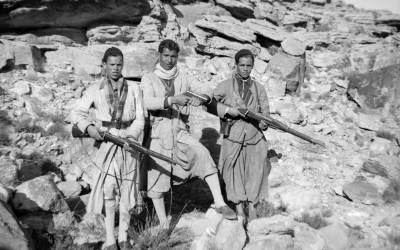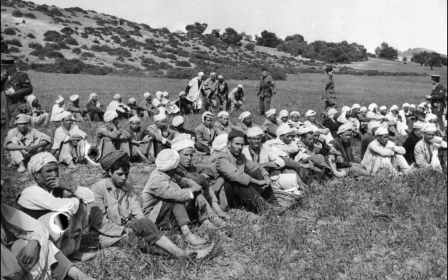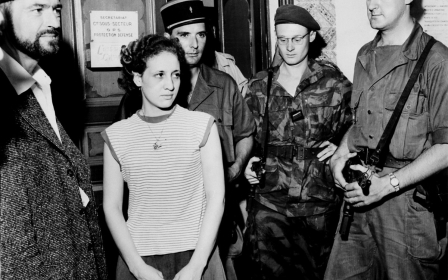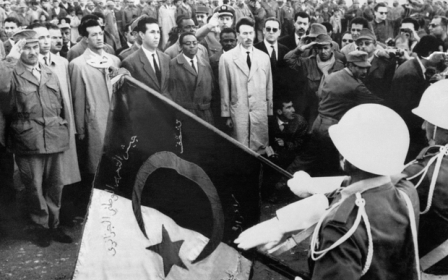Macron admits France tortured and murdered Algerian freedom fighter
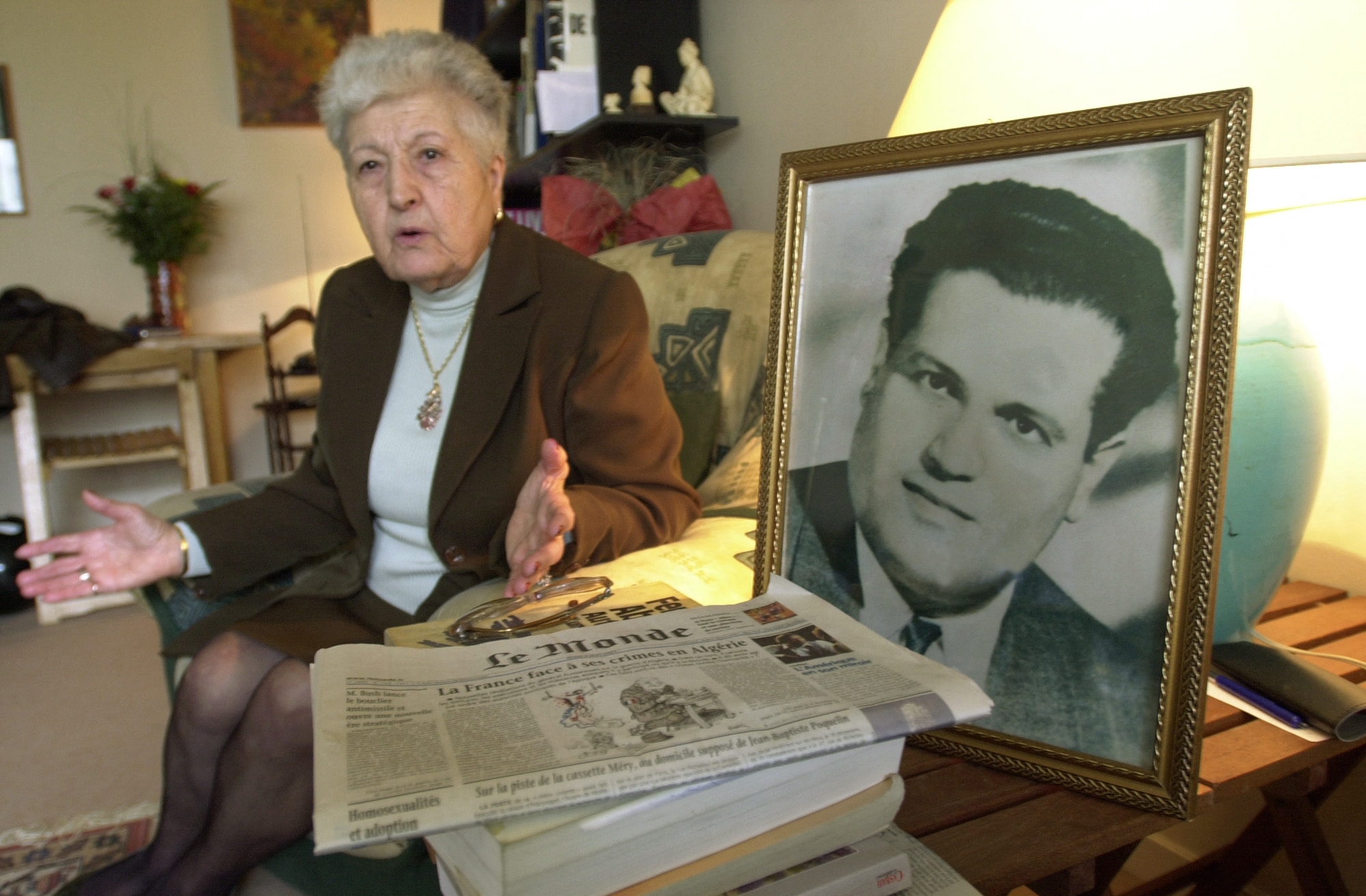
French President Emmanuel Macron has admitted that France's army “tortured and murdered” Algerian nationalist Ali Boumendjel, whose death was previously framed as a suicide during the country's war of independence.
“Ali Boumendjel did not commit suicide. He was tortured and then murdered,” the president told the former freedom fighter’s grandchildren in a meeting on Tuesday.
Boumendjel, a 37-year-old lawyer at the time, played a prominent role in the campaign against France’s colonial rule, before being arrested by French troops during the Battle of Algiers in 1957.
He was “placed in solitary confinement, tortured, then assassinated on 23 March 1957,” the Elysee Palace said in a statement.
After being killed, Boumendjel’s body was thrown from the sixth floor of a building in an attempt to frame his death as a suicide.
The presidency confirmed that Paul Aussaresses, the former head of French intelligence in Algiers, confessed in 2000 to ordering the nationalist’s death and disguising it as a suicide.
"Boumendjel left behind an important political legacy. His fights and his courage forever marked the spirits of Algeria and France," the statement said.
The presidency added that Boumendjel fought "against the injustice of the colonial system", and noted his speech at the 1955 Helsinki World Congress as a testimony to his commitment to peace.
It also acknowledged that Boumendjel's wife, Malika, who died last year, had long fought for the truth about her husband's death, in addition to the fate of several other family members who went missing in 1957.
'Neither repentance nor apologies'
Macron’s admission forms part of a series of measures shedding light on France’s colonial past.
The presidency was widely criticised earlier this year after it said there would be “neither repentance nor apologies” in light of the release of a much-anticipated report on France’s 132-year colonial rule of Algeria.
Instead, the government decided on “symbolic acts” and “a process of acknowledgment”, which included setting up a joint Franco-Algerian “memory and truth” commission to push forward initiatives between the two countries.
“Rather than ‘repentance’, France should recognise the discrimination and exactions of which Algerian populations were the victims, and put forward precise facts,” the report, written by French historian Benjamin Stora, said.
“The excesses of a culture of repentance, or mollifying visions of a history trapped by memorial lobbies, do not contribute to appeasing the relationship to our past.”
'Not an isolated act'
The French presidency said the recognition of Boumendjel’s murder “was not an isolated act”.
“No crime, no atrocity committed by anyone during the Algerian War can be excused or concealed," it said.
"They must be looked at with courage and lucidity, with absolute respect for all those whose lives were shattered and whose destinies they have torn apart.”
According to Tuesday's statement, Macron told Boumendjel’s grandchildren that he would encourage the opening up of historical archives to help the families of those missing establish the truth.
Last year, Algeria marked its 58th independence anniversary with the repatriation from France of the skulls of 24 Algerian resistance fighters.
The skulls had been decapitated and taken back to France as “war trophies”, where they had been kept since the 19th century in the Musee de l'Homme, an anthropology museum in Paris.
Middle East Eye propose une couverture et une analyse indépendantes et incomparables du Moyen-Orient, de l’Afrique du Nord et d’autres régions du monde. Pour en savoir plus sur la reprise de ce contenu et les frais qui s’appliquent, veuillez remplir ce formulaire [en anglais]. Pour en savoir plus sur MEE, cliquez ici [en anglais].


